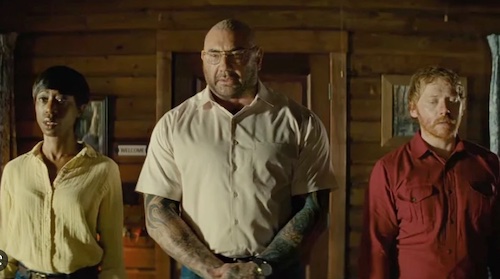
Knock at the Cabin is the new movie from writer-director M. Night Shyamalan and it's released at Cineworld on February 3rd. When we cite the filmmaker's name, you know what to expect: high-concept, enjoyable creepy thrills capped off with a sure-to-be-shocking twist in the final reel.
Shyamalan has blindsided us many times throughout his career with memorable and devastating twist endings. It remains to be seen if Knock at the Cabin will pull off the same trick, being the story of a happy couple, their child and the three menacing strangers who warn of the impending apocalypse. Dave Bautista, Jonathan Groff and Rupert Grint are the big names starring in the director's sure-to-be-surprising latest.
To get you ready for Shyamalan's latest, we've rounded up the six greatest twist endings from his movies. Naturally, this will entail spoilers so if you're not familiar with the director's back catalogue, proceed with caution.
Already familiar with Shyamalan's tendency to delightfully trick us? Read on and remind yourselves of his devious storytelling skill.
WARNING: SPOILERS AHEAD
1. Malcolm has been dead the entire time (The Sixth Sense, 1999)
Still Shyamalan's signature plot twist and the one that established him as the Shockmeister General. Several years on, one can better appreciate the devastating emotional impact lurking beneath the initial bamboozlement as the director fashions a deeply moving statement on the gulf between life and death.
The sequence is resplendent in all manner of impressive details. From Bruce Willis' expertly judged, slow-burn reactions to the matching wallpaper/pillow background that transitions his character Malcolm from the ostensible land of the living back to the bed where he died at the start of the film, it's a beautifully constructed sequence.
In the manner of the most fiendish Agatha Christie plot, it all snaps together. Malcolm's earlier dinner date with his wife, Anna (Olivia Williams)? It wasn't a case of angry estrangement; she simply didn't know he was there, hence her seemingly grabbing the cheque abruptly.
His inability to access the door under the stairs? In her grief, Anna has barred it with a table, and Malcolm's tendency to only "see what [ghosts] want to see" (in the words of Haley Joel Osment's tormented child Cole) means he blocks out this pivotal detail.
Beneath the surface gimmick, however, is a devastating story of a marriage torn asunder. We realise that Anna is still pining for Malcolm and that his 'unfinished business' has been pertaining to her. It compels us to emotionally reassess everything we've seen while also providing a sense of gentle optimism as to what lurks beyond our corporeal world.
The swelling refrains of James Newton Howard's powerful score, which until this stage in the movie has been largely restrained, culminate in a white-out and a final shot of Malcolm and Anna's wedding video. As one's heart reels from the shock, one also grabs the tissues to dab away the tears.
2. Elijah Price is David Dunn's superhero nemesis (Unbreakable, 2000)
Shyamalan's moody superhero odyssey is considered by many to be his finest film. Perhaps overshadowed by the barnstorming success of The Sixth Sense, Unbreakable has revealed itself as the subtler, more slippery cousin of the former, painstakingly establishing a cool, precise visual aesthetic that riffs on comic book iconography and thereby establishes a verisimilitude all of its own.
Shyamalan is, therefore, able to pull us into a fantastical concept that somehow feels grounded and down to Earth. Bruce Willis' David Dunn is a security guard who becomes convinced he is invincible when he survives a deadly train crash. Samuel L. Jackson is the brittle-boned comic book aficionado Elijah Price aka Mr. Glass whose destiny interlocks with that of David in ways that are mysterious, until the typically shocking reveal.
It's established that Elijah has long been seeking his comic book opposite number, conjuring all manner of accidents and disasters, including David's opening train wreck, to find the yin to his yang, the Batman to his Joker, if you will. It turns out this person is David and that they're destined to remain on a collision course. (More on that momentarily.)
Shyamalan is able to invert the stereotypical, cliched hero/villain stand-off trope, cleverly retrieving it from implausibility by virtue of the film's measured, dispassionate approach that has consistently placed character interaction before cape-swirling mayhem.
3. The aliens are allergic to water (Signs, 2002)
The rock-solid Shyalaman brand perhaps went a bit wobbly in this alien invasion thriller, which was accused of an implausible final movement that doesn't stand up under close scrutiny. Still, it's the journey, not the destination, that counts, and the final alien-centric reveal of Signs actually has a precedent. H.G. Wells' classic sci-fi novel War of the Worlds, lest we forget, had the Martians defeated by the microbes and bacteria present in our atmosphere and water.
If one is being generous, it could be said that Shyalaman, a genre fan, is honouring this classic heritage. Either way, it begins with Mel Gibson's lapsed priest, disillusioned by the death of his wife, confronting crop circles in his Pennsylvania cornfield. It ends with Gibson's character, Graham Hess, newly restored to faith after he and his family discover that the alien invaders die upon touching water. Not particularly helpful given our planet is comprised of 70% H20.
A twist too far from the master behind The Sixth Sense? That's up for debate but there's no denying the effectiveness of Gibson's impassioned performance as he plays a man whose spiritual redemption is prompted by the most unlikely of circumstances.
4. The village is located in the present day (The Village, 2004)
Shyamalan's underrated thriller polarised opinion during its final moments, with many (including the noted critic Roger Ebert) decrying it as a step too far. As a piece of physical production, The Village is among Shyamalan's greatest achievements, blessed with rustic cinematography from the masterful Roger Deakins (Blade Runner 2049), and a lilting, violin-led score from regular collaborator James Newton Howard that deservedly attained an Oscar nomination.
The movie focuses on an isolated hamlet, apparently located in the 19th century, that lives in perpetual fear of the red-cloaked figures lurking in the woods beyond. When Bryce Dallas Howard's blind but brave Ivy must make the journey beyond the village to get help, we discover the truth. The village is actually a modern-day construct located inside a national park, positioned away from flight paths and populated by those who have retreated from contemporary society.
It's these people who are tormented by the 'monsters', subsequently revealed to be village insiders who terrorise the inhabitants to keep them in line and maintain the peace. Whether one buys the premise or not, Shyamalan makes salient points about self-sufficiency and the detrimental cost of blind faith and collective ideology.
5. The grandparents aren't the grandparents (The Visit, 2015)
In the late 2000s, Shyamalan suffered a series of disastrous flops. These ranged from the pompous Lady in the Water (2006) to the Mark-Wahlberg-talks-to-a-potted-plant farce of The Happening (2008), the mega-budget incoherence of The Last Airbender (2010) to the underwhelming Will/Jaeden Smith sci-fi actioner After Earth (2013).
Shyamalan was in desperate need of a hit and he found one by going back to basics. The Visit is the director's first, and so far only, attempt at a mockumentary movie and it resulted in critical and commercial success. It also restored his penchant for twists for the first time in more than a decade.
The set-up is classic Grimm's fairy tale: two kids go to visit their eccentric grandparents in their rustic cottage, only to discover that the elderly couple is behaving in a bizarre, disturbing manner. Critically, the youngsters have never met their relatives before, so it may or may not come as a surprise when a video call reveals the incumbent oldies are not the kids' grandparents.
The shocking reveal (well, shocking if you didn't twig it at the start) sets up the creepy endgame as the tenacious teens (one of whom is a dweeby aspiring filmmaker) must escape from the clutches of the psychos now posing as their family. It restored Shyamalan's ability to catch an audience off-guard and gave his flagging career a second wind.
6. Kevin occupies the Unbreakable universe (Split, 2016)
Flush from the success of The Visit, Shyamalan then embarked on something truly unexpected: a sequel to his movie Unbreakable. The twist: we didn't know this at the time, the monumental reveal being saved for the last few seconds in Shyamalan's signature manner.
Split centres around an impressive James McAvoy as Kevin, a serial kidnapper who stores 24 distinct personalities in his head. Said personalities range from lisping child Hedwig to the prim Patricia – and it's all in anticipation of the Beast, Kevin's yet-to-be-revealed final personality that has the ability to contort his entire body and transform him into something monstrously dangerous.
When Kevin's latest quarry Casey (Anya Taylor-Joy) attempts to escape his clutches, it coincides with the emergence of the animalistic Beast, to her great horror. She ultimately manages to get away and Kevin also escapes, going to ground elsewhere. Watching the ensuing news footage: Unbreakable character David Dunn (Bruce Willis) who realises he now has a terrifying new nemesis to battle.
This sets up the events of Shyamalan's subsequent film Glass (2019) in which David, Kevin and a returning Elijah Price/Mr. Glass (Samuel L. Jackson) find themselves occupying the same asylum before entering a dramatic final confrontation.
How will Shyamalan's latest movie end? Click here to book your tickets for Knock at the Cabin and tweet us your twist predictions for the movie @Cineworld.

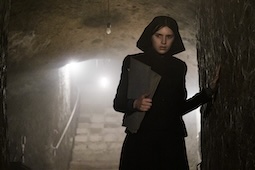
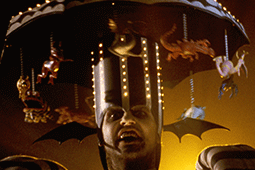
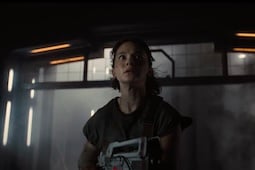
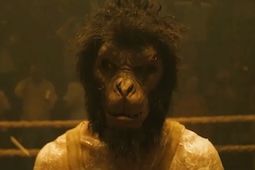
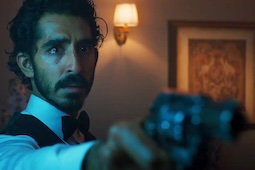

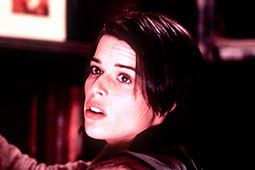
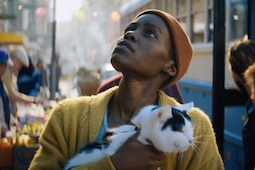
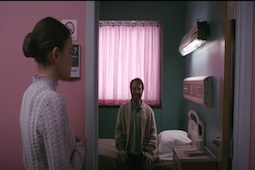
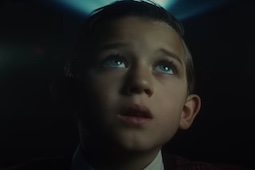
.jpg)
.jpg)

.jpg)
.png)



